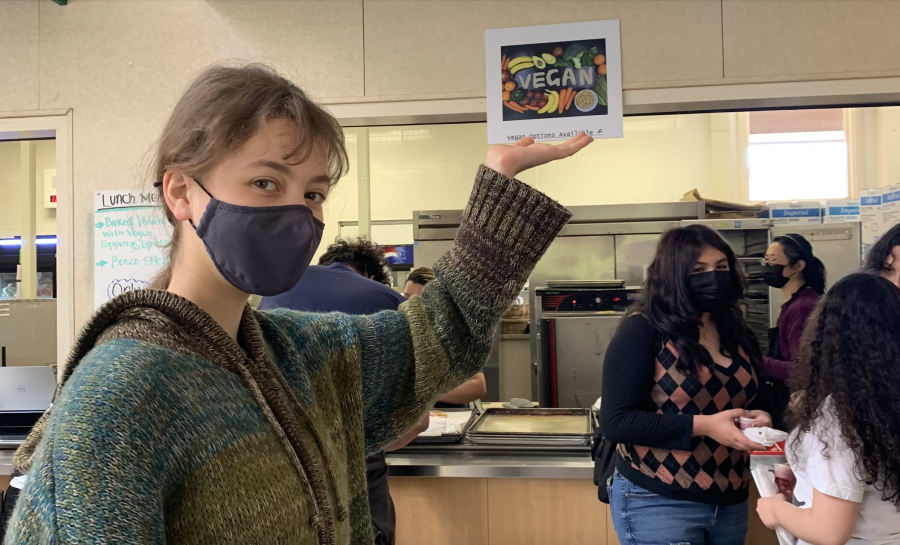In response to a successful, student-organized petition advocating for more plant-based lunches, Paly has begun offering a bi-weekly specialty bar including meat and vegan options for meals such as customizable burritos and taco bowls.
Though this effort is a step in the right direction, The Campanile urges PAUSD to continue offering the specialty bar beyond its pilot program and start adding more plant-based meals to everyday brunch and lunch options to accommodate all students’ dietary needs.
While the cafeteria currently offers daily vegetarian options, it offers vegan alternatives less frequently. Nutrition Services Director Alva Spence told The Campanile that the PAUSD Nutrition Team is aiming to increase plant-based meals through the specialty bar but not in the daily cafeteria cycle. So what about students with restricted diets who depend on daily free cafeteria lunches?
An voluntary, online Google Form survey conducted by The Campanilie showed that out of 337 students who responded, nearly a third have specialized diets, ranging from pescatarian to vegan. And not everyone from that group can buy their own lunch from Town & Country on days when vegan options aren’t available from the school.
The Universal Meals Program provides free, nutritionally adequate breakfasts and lunches to all Californian students, but without a steady supply of vegan offerings, free meals are inaccessible to those with diets restricted by dietary, religious, cultural or personal needs.
And with California’s severe, ongoing drought and the planet’s accelerating global warming crisis, the environmental impact of adding more plant-based meals is worth considering as well. The Environmental Working Group states that if everyone in the U.S. were to eat neither meat nor cheese for one day a week, it would have the same environmental impact as taking 7.6 million cars off the road. And a study published by Proceedings of the National Academy of Sciences found that the meat and dairy industry uses a third of Earth’s fresh water.
Spence also told The Campanile the cafeteria will operate on a tighter budget next year. Considering that — in addition to rising food costs — serving more plant-based meals could be cost-effective and further aid in providing more meals for more students.
In 2013, The Oakland Unified School District participated in a pilot program over a two-year period where it increased its purchases of fruits, vegetables and legumes by 10%, decreased its purchases of animal products by nearly 30% and sourced its meat from organically and humanely raised, spent dairy cows. In doing so, it saved $42,000, reduced its carbon footprint by 14% and reduced its water use by nearly 7%. OUSD proves that more plant-based items on cafeteria menus can be both cost-efficient and environmentally friendly.
The Los Angeles Unified School District began a similar vegan pilot program in 2017, and Florida’s Fort Walton Beach High School has already been offering daily vegan cafeteria options since 2018. As a renowned school district in the center of America’s hub of innovation, PAUSD should follow suit and join the pursuit of positive change for scholastic meal services, and positive change starts with our own school’s practices.
Dietary restrictions, including plant-based diets, aren’t just a biweekly commitment — they are lifestyles that the district must make accommodations for to make school meals accessible to students of all demographics. Only then can we make the Universal Meals Program truly universal.


